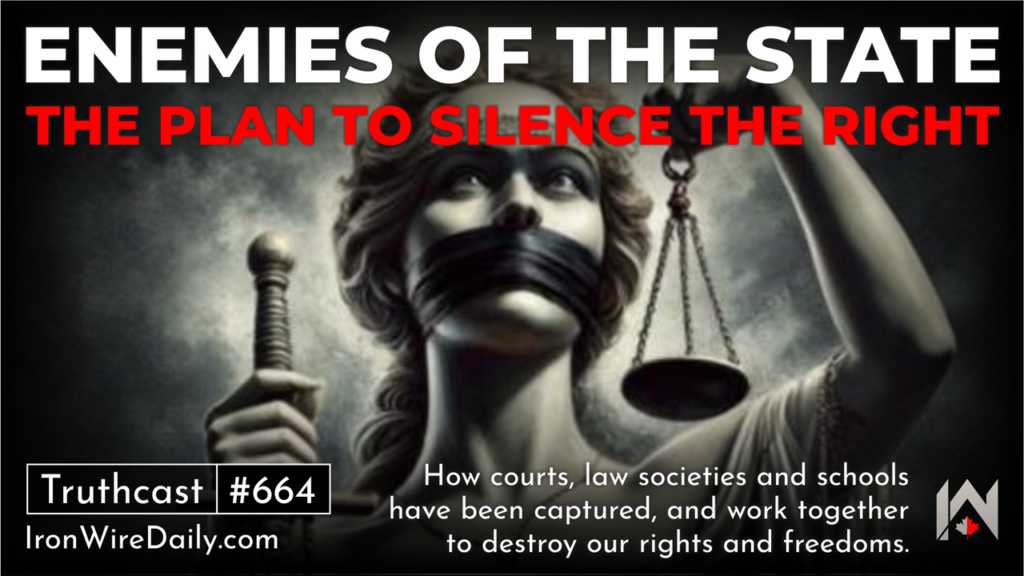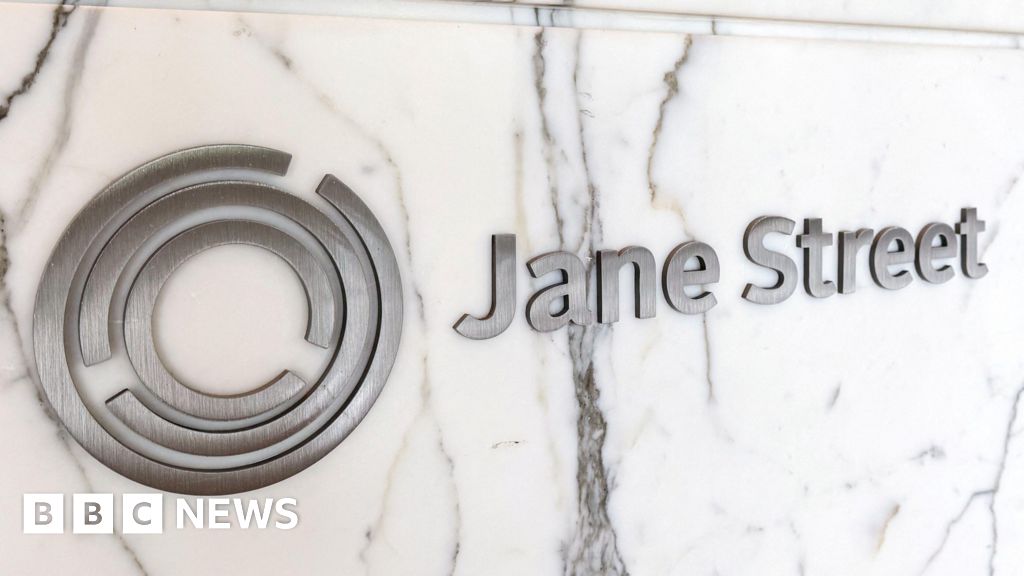Juryless trials are not a solution for Crown Court backlogs; they are a step toward centralised control – The Expose

Juryless trials are not a solution for Crown Court backlogs; they are a step toward centralised control
Magna Carta guarantees everyone in the UK the right to judgment by a jury of his/her peers. Yet, last week Sir Brian Leveson proposed removing juries from certain trials in England and Wales to address backlogs of hearing cases in the Crown Courts.
Juryless trials are not a solution; they are a step towards centralised control. They would concentrate decision-making in the hands of professional judges, increasing the risk of institutional bias and state influence, and could lead to miscarriages of justice, as seen in Northern Ireland’s Diplock courts’ reliance on informants and relaxed evidentiary standards.
Juryless trials will erode democratic accountability and are a threat to individual rights, the rule of law and the UK’s constitution.
Let’s not lose touch…Your Government and Big Tech are actively trying to censor the information reported by The Exposé to serve their own needs. Subscribe now to make sure you receive the latest uncensored news in your inbox…
In mid-December, it was reported that the UK Justice Secretary, Shabana Mahmood, was considering scrapping jury trials for thousands of offenders to prevent the court backlog from reaching 100,000 cases. To this aim, among others, Sir Brian Leveson was tasked with reviewing ways to scale back defendants’ rights to jury trials without undermining fair justice, including the creation of a new intermediate court with a judge and two magistrates.
This could see magistrates hearing more serious cases, some defendants losing the right to ask for their case to be tried before a jury and the creation of a new intermediate court, which would replace a jury with one judge and two magistrates.
The right to a jury trial extends back to the 13th century, and ministers are adamant that serious crimes such as murder, manslaughter, sexual assaults – including rape – assault causing grievous bodily harm, aggravated burglary and arson with intent will still be tried before their peers in Crown Court.
Jury trials could be scrapped to stop court backlog hitting unprecedented level, The Telegraph, 12 December 2024
The first part of Leveson’s report was published on 9 July 2025. Leveson’s proposals have not yet been accepted by the Government and are not policy. Mahmood has stated that she will consider the recommendations and respond before legislating in the autumn.
In an initial response to the report, the Bar Council warned against proposals to remove jury trials. Barbara Mills KC, Chair of the Bar Council, said:
We continue to argue that there is no need to curtail the right to trial by jury – from both a principle and practical position. Juries represent society and are a fundamental part of our system. And on a practical level, it remains unclear how the current resources in the system – magistrates, judges, court staff and courtroom capacity – will be able to meet the demands of the proposed new Crown Court Bench Division.
Leveson report: diversion welcome but no need to curtail trial by jury, warns Bar Council, The Bar Council, 11 July 2025
Similarly, the Law Society has expressed concerns that the proposed changes would undermine the historic jury system without effectively addressing the backlog. “Richard Atkinson, the president of the Law Society, said: ‘The proposed new division of the Crown Court on its own will not solve the Crown Court backlog. The government would have undermined our historic jury system for no effect’,” The Guardian wrote.
Earlier this month we published an article about an interview with Justin Walker, a member of The British Constitution Group. During the interview Walker emphasised the importance of common law and the rule of law as a way to protect people from a tyrannical government. He said:
If somebody is tried because they have breached a statute, or whatever, it may be that the jury says, “Well, hang on a moment, we believe unanimously, we believe that this statute is unjust, we will find the individual not guilty. And in doing so, we annul the effectiveness of that statute.” In other words, what we’re talking about is that a jury is the ultimate defence and shield against tyranny.
Central banker tells his nephew: We control the press and the politicians, The Need for Sovereign Government Control, The Exposé, 5 July 2025
In the following, Conscientious Currency explains the importance of trial by jury in more detail.
The Perils of Abolishing Jury Trials: Lessons from Diplock Courts
Table of Contents
- Introduction
- The Historical and Constitutional Foundations of Jury Trials
- The Injustices of Diplock Courts: A Cautionary Tale
- Diplock and Human Rights
- The Rule of Law and Impartiality Through Community Judgment
- The Brief Constitutional Implications of Abolishing Jury Trials
- In Summary
- Notes
- About the Author
Introduction
The jury trial, a bedrock of the English legal system, a vital mechanism for ensuring fairness, community participation and resistance to state overreach, is once again under threat. Sir Brian Leveson last week unveiled radical proposals to “clear huge backlogs in Crown Courts in England and Wales,” his solution being to remove juries to “save the criminal justice system” [1].
If Leveson’s recommendations are implemented, the right to trial by jury could initially be removed for offences such as sexual assault, racially or religiously aggravated strangulation, harassment and child abduction. However, there is no reason why juryless trials would not be extended beyond these offences in the future.
Before we go any further, it is worth asking, given that trial by jury is a right, how it can just be “removed.” I guess the answer to that lies in the dismantling of our constitution, which has been ongoing for many years, and which continues unabated and largely unchallenged by the British population. This, I am afraid, has to change before we become some sort of federalised basket case country, run by 15 district mayors – more on that another day.
Proposals to eliminate jury trials in England are always framed as solutions to inefficiencies or “rising costs.” Nothing is ever said about the many years of constant government underfunding of the criminal justice system, woeful access to legal aid, legal aid rates payable for barristers and solicitors, and the fact that successive governments, whatever their colour, would like nothing more than to reduce the constitutional rights of those they work for, as far as possible.
If you remember, and how can we forget, jury trials were attacked during “covid,” when they were suspended due to the “emergency” at hand. This naturally caused a backlog of cases. Handy that – if you want to remove juries. Create a backlog by suspending jury trials, then claim you need to remove juries altogether, due to the further backlog of cases that suspending jury trials created. Make it make sense if you can. And for reference, before the March 2020 lockdown, there were approximately 39,000 cases waiting to be heard in the Crown Court. The suspension of jury trials during lockdown led, eleven months later, to a backlog which exceeded 56,000 cases [2].
The removal of jury trials is, of course, a grave threat to the rule of law and our unwritten constitution. The historical precedent of Diplock courts in Northern Ireland, (see below), where juryless trials were introduced during the Troubles, serves as a stark warning of the injustices that can arise from such systems. In her submission to the Justice Committee in October 2020, following the suspension of jury trials during lockdown, Dr Hanah Quirk stated [3]:
The suggestion is that any suspension of jury trials would be a temporary measure to reduce the backlog caused by the lockdown. In practice, this is unlikely to happen. Judge-only trials are speedier and cheaper, which will appeal to the Treasury and Ministry of Justice. Once ceded, rights are rarely reinstated. Once the principle of removing juries has been conceded, it would be easy for the government to raise the threshold for cases that could be considered without a jury. “Emergency” measures tend to have a much longer life than originally promised. The Belfast (“Good Friday”) Agreement was signed in 1997, but Diplock Courts introduced under the Northern Ireland (Emergency Provisions) Act 1973 were not abolished until 2007. The DPP for Northern Ireland can still certify that a trial should be held without a jury. The legislation was due to expire after two years but has been extended by successive orders since 2007; there were 42 such cases in the last year.
The highlighted portion of Quirk’s statement weighs heavily on me, as it underscores a troubling trend that began during lockdown. What was initially justified as a necessary response due to the mass fear mongering of the time, not only inflated the backlog of criminal cases by nearly 20,000 but also laid the groundwork for normalising juryless trials under the guise of protecting the justice system. The suspension of jury trials during lockdown, sold to the public as a measure “for everyone’s safety,” gained widespread acceptance. This set a dangerous precedent, paving the way for proposals to eliminate juries in certain trials, purportedly to “safeguard” the criminal justice system. However, let us be clear: removing juries is not about protection – it is a deliberate step toward state overreach, steering us toward administrative courts that dispense the executive’s version of justice. This should terrify us all, especially given that abolishing jury trials would undermine the rule of law, erode public trust, weaken protections against state power and destabilise our constitutional balance. Simply put, juries have an indispensable role in upholding justice and constitutional integrity.
The Historical and Constitutional Foundations of Jury Trials
The jury trial, rooted in Magna Carta of 1215, is a cornerstone of England’s legal and constitutional framework. Clause 39, which guarantees that no free man shall be punished except by the lawful judgment of his peers or the law of the land, established juries as a safeguard against arbitrary state action. Jury trials have been a “central feature” of the English criminal justice system for centuries, evolving into a mechanism that ensures justice reflects community values. Within the UK’s unwritten constitution, which comprises statutes, conventions, and judicial precedents, juries serve as a democratic check on state power, balancing the authority of the executive, legislature and judiciary.
The rule of law, as articulated by A.V. Dicey, demands equality before the law, transparency in its administration and protection from arbitrary governance. Jury trials embody these principles by involving ordinary citizens in adjudicating serious criminal cases, ensuring that justice is not solely the domain of state-appointed judges. Juries make justice “seen to be done,” fostering public legitimacy. Abolishing juries would sever this historical and constitutional link, centralising judicial power and undermining the principle that justice is a shared responsibility between the state and its citizens.
The Injustices of Diplock Courts: A Cautionary Tale
Diplock courts, introduced in Northern Ireland in 1973 under the Northern Ireland (Emergency Provisions) Act, provide a chilling example of the dangers of juryless trials. Established in response to the Troubles, these courts replaced juries with single judges for “scheduled offences” related to terrorism, citing concerns about jury intimidation and bias in a deeply divided society. However, the Diplock system led to significant injustices, highlighting the risks of removing public participation from the judicial process.
Diplock courts were criticised for compromising fairness, as single judges wielded sole authority over verdicts, increasing the potential for bias and/or state influence. In short, the absence of juries removed the diverse perspectives that mitigate individual judicial prejudices and represent community values.
Patrick Livingstone served 17 years in prison for the killing of 26-year-old council worker Samuel Llewellyn in west Belfast in August 1975, after being convicted in a Diplock Court. In 2013, Court of Appeal judges ruled that his conviction was unsafe [4]. He is quoted as saying, “Diplock (non-jury) courts are inherently unsafe. One man cannot sit up there and decide on your life. Diplock courts should be scrubbed now and all Diplock decisions should be expunged.”
In 2010, The Guardian reported on hundreds of people convicted during the Troubles, who were claiming miscarriages of justice arising from non-jury Diplock courts. [5] Some of those involved were juveniles at the time of their conviction. The article states: “As the appeals mount, a number of men who served as detectives with the Royal Ulster Constabulary (RUC) have told The Guardian how senior officers encouraged the systematic mistreatment of suspects at Castlereagh interrogation centre in east Belfast, and elsewhere, after the establishment of the Diplock courts in 1973. They say they took full advantage of the vague wording of emergency legislation in Northern Ireland which allowed the courts to admit confessions as evidence, providing there was no evidence they had been obtained through the use of torture, or inhuman or degrading treatment. One retired detective commented: ‘Do repeated slaps around the face amount to torture? What about an occasional kick in the balls?’”
John Christopher (Christy) Walsh was another convicted in 1991 by a Diplock Court. He campaigned for 20 years to clear his name on the basis that his conviction was a miscarriage of justice. After two unsuccessful appeals, he was allowed an unprecedented third appeal based on new evidence and his conviction was overturned as unsafe in March 2010. He had by then served many years behind bars for something he had not done.
What the above cases demonstrate is that not only do police use “heavy handed” tactics to induce “confessions” where vague legislation around the same is introduced, (something we see a lot of these days), but also, without a jury to scrutinise such evidence through collective deliberation, a judge’s reliance on prosecution evidence only leads to questionable convictions. The cases illustrate, very simply, how juryless trials amplify errors and biases, undermining the rule of law’s requirement for impartiality.
Diplock courts were widely, and rightly, perceived as tools of state control, particularly by nationalist communities in Northern Ireland, who viewed them as biased toward the British government. A report by Amnesty International (1998) documented concerns that Diplock courts facilitated convictions based on weak or circumstantial evidence, eroding public trust to support the state’s narrative of the day. [7] One part of their report stated: “Amnesty International has been concerned that lower standards for the admissibility of confession evidence, lack of full disclosure by the prosecution to the defence of crucial evidence, and the curtailment of the right of silence have resulted in unfair trials. The Special Rapporteur recommended that the standards in emergency legislation for admitting confession evidence should be abolished. He further recommended that the “restoration of the jury system, which has been a culture within the criminal justice system in England, would help restore public confidence in the administration of justice.”
This perception of bias mirrors the risk in England, where juryless trials will no doubt be seen as serving state interests, especially in any politically sensitive cases, further weakening public confidence in the judiciary and the law itself.
Diplock and Human Rights
The Diplock system was also heavily criticised by human rights organisations for violating Article 6 of the European Convention on Human Rights (“ECHR”) which guarantees the right to a fair trial for everyone, both in criminal and civil matters. The use of “supergrass” trials in particular, where informants provided evidence in exchange for immunity, led to mass convictions and the absence of juries allowed judges to accept evidence without the robust scepticism a diverse jury might apply. This, of course, resulted in miscarriages of justice [8]. These injustices serve only to highlight how juryless trials prioritised state objectives over individual rights, a risk that would loom large if England adopted a similar system. Juryless trials in England would bear striking similarities to the Diplock courts, with comparable risks to the rule of law and constitutional integrity.
Just like Diplock courts, juryless trials would concentrate decision-making in the hands of professional judges, increasing the potential for institutional bias and state influence, eroding the principles of Article 6 ECHR. Juryless trials could also be extended to cases involving national security or public order and could eventually mirror the “scheduled offences” of Diplock courts, where state priorities overshadowed fairness. The absence of juries would reduce public participation in such cases, eroding democratic accountability – a strength of the jury system. Just as Diplock courts alienated communities in Northern Ireland, juryless trials in England will foster perceptions of an elitist judiciary, detached from public values.
A 2023 YouGov poll [9] showed that 56% of Britons support retaining jury trials, with only 20% supporting a judge-only trial, evidencing that the removal of juries would indeed alienate over half of the public. Further, the procedural shortcuts associated with juryless trials, such as relaxed evidentiary standards, could echo the Diplock courts’ reliance on confessions or informant testimony. Without juries to deliberate on such evidence, judges may well prioritise efficiency over thoroughness, risking miscarriages of justice akin to those discussed above. These parallels underscore the dangers of adopting a juryless system, rife for replication of the injustices of Diplock courts, but on a much broader scale.
The Rule of Law and Impartiality Through Community Judgment
The rule of law requires impartiality, transparency and resistance to undue influence, all of which jury trials uphold in ways that juryless systems cannot. Juries, composed of randomly selected citizens, bring diverse perspectives that mitigate individual biases because they have an emphasis on varied community representation. In contrast, Diplock-style courts comprise single judges, who, despite their training, can be swayed by institutional pressures and contested evidence. Juryless trials in England therefore risk homogenous decision-making, undermining impartiality.
Juries also act as a bulwark against state overreach, as they have the power to acquit defendants in cases of perceived injustice, through jury nullification (for reference, see the famous 1670 Penn and Mead case). In this way, juries are a “buffer” between the individual and the state. Diplock-style courts, by contrast, will facilitate state-driven prosecutions, where judicial deference to prosecution evidence and the political will of the day will lead to controversial convictions, empowering the state and weakening protections against overreach.
Jury trials also foster public confidence through their involvement of citizens directly in the justice system. This helps with transparency, but, moreover, with understanding of not only how the Court system operates but also the police when they investigate and bring evidence of crime. Diplock-style courts obviously exclude all public involvement and hence will fuel distrust, alienating citizens who will lose a tangible role in justice. This thoroughly and completely undermines the rule of law’s reliance on public consent.
The Brief Constitutional Implications of Abolishing Jury Trials
England’s unwritten constitution depends on a balance of powers, with juries ensuring public participation and judicial independence. Jury removal would have profound consequences, such as:
– Diminishing democratic accountability. Juries embody democratic principles by giving citizens a stake in justice. Unlike appointed judges, jurors reflect the electorate’s diversity, providing democratic oversight. The exclusion of juries would concentrate power in the state, undermining accountability. This would shift the constitutional balance toward a technocratic judiciary
– Undermining common law traditions. The common law, a pillar of the constitution, evolves through societal input, with juries applying contemporary values to legal questions, bringing “lay perspectives” to the law. Diplock-style courts, by relying on judges alone, will produce rigid interpretations that favour the state. Juryless trials, therefore, risk stifling the common law’s adaptability, weakening our constitution’s flexibility.
– Precedent for further erosion. Our unwritten constitution is vulnerable to incremental changes. The Diplock courts of Northern Ireland, initially introduced as a temporary measure, persisted for decades, normalising juryless trials. Abolishing juries in England for some trials could set a precedent for further restrictions, such as on legal aid or judicial review, destabilising our constitutional framework further
– A clear move toward guilty until proven innocent. Judges in juryless trials, especially magistrates or single judges, develop biases from repeated exposure to similar cases or pressure from government and/or political and media sentiment. Unlike juries, which are randomly selected and disband after each case, judges are part of the legal establishment, and this leads to a subconscious lean toward conviction, subtly shifting the burden onto defendants to prove their innocence, inverting the centuries-old presumption of innocent until proven guilty
In Summary
Jury trials place the decision of guilt or innocence in the hands of ordinary citizens, who are less likely to be swayed by institutional pressures or preconceived notions tied to the state or legal system. Many citizens now have a more independent grasp on fake politics and the real issues arising therefrom, to a large degree – yes, not all are propagandised by the BBC – and believe me when I say judges and magistrates live in another world to the rest of us.
Juries can acquit based on conscience, even when evidence suggests guilt, and this acts as a check against unjust laws or state overreach. Judges, bound by legal precedent and less insulated from institutional pressures, will not exercise such discretion and will prioritise legal technicality and political correctness over justice. Juryless trials are therefore a clear attack on the concept of jury nullification, a vital democratic principle in the UK, empowering citizens to reject unjust or unacceptable legislation through their verdicts. Jury nullification serves as a cornerstone of the social contract, ensuring that the law reflects community values and resists overreach by the state. Juryless trials directly threaten this mechanism by removing the public’s ability to challenge legislation, undermining the democratic foundations of the justice system, and further eroding the social contract that binds citizens and the state in mutual accountability.
Further, without juries, the state, through judges and magistrates, has more control over outcomes because the judiciary can be bought, influenced or threatened. This risks a system where the state’s narrative dominates, and defendants face a more sceptical, less diverse decision-maker. The adoption of juryless trials, therefore, risks escalating existing threats to justice, particularly as judges may soon increasingly rely on streamlined processes and AI tools. These technologies, if misused, could introduce errors or biases that skew toward guilt, placing an unfair burden on defendants to disprove flawed evidence. Compounding this danger is the state’s push to criminalise misinformation, malinformation, and disinformation. If juryless trials were extended to such cases, as seems likely given current state priorities, they would pose a clear and immediate threat to free expression and individual rights.
The precedent of Northern Ireland’s Diplock courts, which led to many miscarriages of justice, serves as a stark warning of the perils of juryless systems, where state influence and procedural shortcuts undermine fairness. Rather than abolishing juries, the state should prioritise investment in the criminal justice system to address court backlogs and prevent its “collapse.” Resources could be redirected from less urgent expenditures, such as excessive foreign aid or unproven environmental initiatives, to strengthen a system that serves the public’s interest.
Juryless trials are not a solution; they are a step toward centralised control that erodes democratic accountability. We must resist their introduction with the same vigour as we oppose digital IDs and central bank digital currencies, recognising them all as part of a broader effort to diminish individual freedoms and entrench state power.
Notes
- [1] Jury-free trials proposed to save criminal justice system from collapse
- [2] Select Committee on the Constitution – COVID-19 and the Courts
- [3] Quirk H. (2020). Written evidence to the Justice Committee (12899)
- [4] Patrick Livingstone -17 years in prison after wrongly convicted in a Diplock Court
- [5] The Guardian 2010 – miscarriages of justice in Diplock Courts
- [6] The Christy Walsh case
- [7] Amnesty International 1998 report
- [8] Supergrass system back in dock
- [9] You Gov 2023 poll
About the Author
Conscientious Currency is a pseudonym for Clare Wills Harrison, a former UK succession lawyer with 25 years of experience. Wills Harrison became known for her tireless fight during 2020 and the years that followed to expose the midazolam scandal. She publishes articles on a Substack page, which you can subscribe to and follow her Substack HERE.
#image_title
” data-image-caption=”
#image_title
” data-medium-file=”https://i0.wp.com/expose-news.com/wp-content/uploads/2025/07/JulFeat16b.png?fit=300%2C169&ssl=1″ data-large-file=”https://i0.wp.com/expose-news.com/wp-content/uploads/2025/07/JulFeat16b.png?fit=639%2C359&ssl=1″>
The Expose Urgently Needs Your Help…
Can you please help to keep the lights on with The Expose’s honest, reliable, powerful and truthful journalism?
Your Government & Big Tech organisations
try to silence & shut down The Expose.
So we need your help to ensure
we can continue to bring you the
facts the mainstream refuses to.
The government does not fund us
to publish lies and propaganda on their
behalf like the Mainstream Media.
Instead, we rely solely on your support. So
please support us in our efforts to bring
you honest, reliable, investigative journalism
today. It’s secure, quick and easy.
Please choose your preferred method below to show your support.
While previously it was a hobby culminating in writing articles for Wikipedia (until things made a drastic and undeniable turn in 2020) and a few books for private consumption, since March 2020 I have become a full-time researcher and writer in reaction to the global takeover that came into full view with the introduction of covid-19. For most of my life, I have tried to raise awareness that a small group of people planned to take over the world for their own benefit. There was no way I was going to sit back quietly and simply let them do it once they made their final move.
















